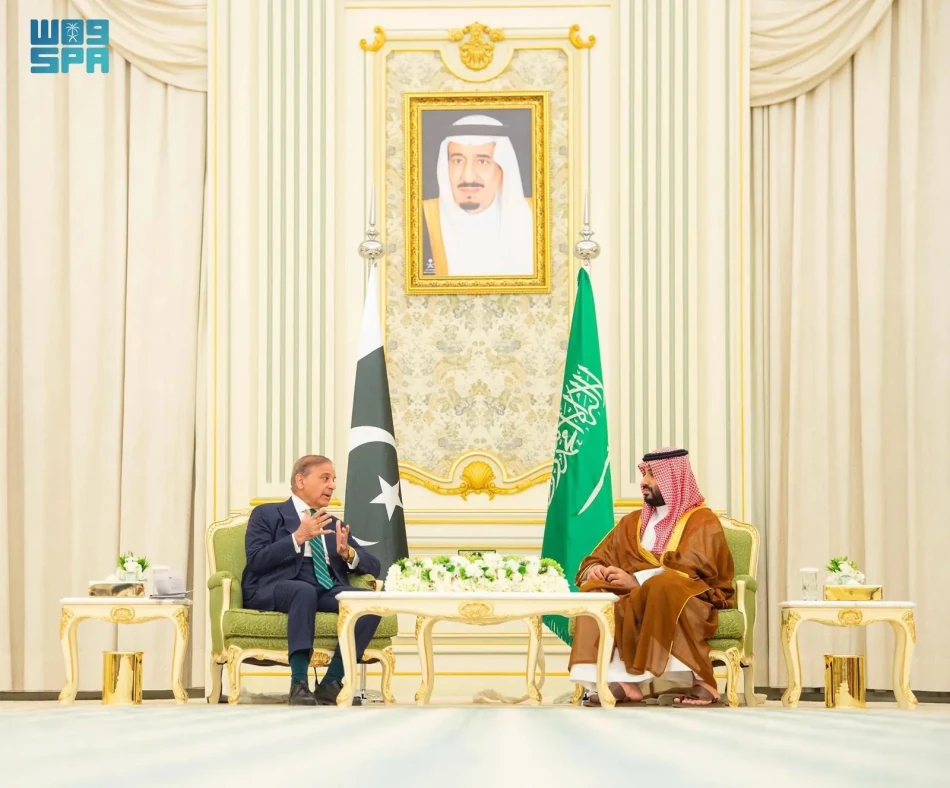
Pakistan Offers Nuclear Technology to Saudi Arabia in Case of Necessity
Pakistan Extends Nuclear Umbrella to Saudi Arabia in Historic Defense Pact
Pakistan's Defense Minister has made an unprecedented declaration that the country's nuclear arsenal would be "available" to Saudi Arabia if needed, following a landmark mutual defense agreement signed this week. The announcement marks the first explicit confirmation that Islamabad is placing Riyadh under its nuclear protection umbrella, potentially reshaping Middle Eastern security dynamics and regional power balances.
A NATO-Style Alliance for the Islamic World
Defense Minister Khawaja Muhammad Asif told Pakistani television that under the new defense agreement, "if aggression occurs against Pakistan or Saudi Arabia, they will be defended together." The pact, signed Wednesday between Saudi Crown Prince Mohammed bin Salman and Pakistani Prime Minister Muhammad Shehbaz Sharif, establishes that an attack on either nation constitutes an attack on both.
Asif framed the agreement as part of a broader vision for Islamic military cooperation, stating: "We have always talked about NATO-like arrangements, and I believe it is the fundamental right of the countries and peoples of this region, especially Islamic states, to defend their region, countries, and nations together."
Open Architecture for Regional Expansion
The defense minister emphasized that the agreement contains no provisions preventing other nations from joining or restricting Pakistan from entering similar arrangements with additional countries. When asked about potential Arab state participation, Asif noted that "the doors are not closed," suggesting this could be the foundation for a broader regional security architecture.
Strategic Implications for Middle Eastern Security
This nuclear guarantee represents a significant escalation in Pakistan-Saudi relations and introduces new variables into Middle Eastern geopolitics. Pakistan's nuclear arsenal, estimated at 170 warheads, would effectively serve as a deterrent against any potential threats to Saudi Arabia, particularly from regional rivals.
The timing appears strategic rather than reactive. Saudi officials emphasized that the agreement culminates years of discussions rather than responding to specific recent events, suggesting careful long-term planning rather than crisis-driven diplomacy.
Economic and Military Dimensions
The comprehensive agreement covers "all military means" according to Saudi statements, indicating cooperation extending beyond nuclear deterrence to conventional forces, intelligence sharing, and joint defense planning. This mirrors successful defense partnerships like the US-Japan alliance or France's security guarantees to several African nations.
Regional Power Dynamics and International Reactions
Pakistan's nuclear umbrella extension to Saudi Arabia will likely prompt responses from other regional powers. Iran, already engaged in proxy conflicts with Saudi Arabia across the Middle East, now faces the prospect of nuclear deterrence backing Saudi positions. Israel, despite recent normalization efforts with some Arab states, must recalculate its strategic environment with nuclear weapons potentially protecting its regional rival.
For international observers, this development represents a significant shift from traditional non-proliferation norms. While Pakistan isn't transferring nuclear weapons, extending nuclear deterrence guarantees effectively expands nuclear influence without formal proliferation.
Historical Precedent and Future Implications
The arrangement echoes Cold War-era security guarantees, where nuclear powers extended deterrence to non-nuclear allies. The US nuclear umbrella protected Western Europe and East Asia, while Soviet guarantees covered Warsaw Pact members. This Pakistan-Saudi arrangement could establish a new model for South-South nuclear deterrence relationships.
The agreement's open architecture suggests potential expansion into a broader Islamic military alliance, fundamentally altering regional security calculations and potentially challenging existing international security frameworks. Whether this materializes into concrete military cooperation or remains largely symbolic will depend on future regional developments and the willingness of other Islamic nations to join this emerging security structure.
Most Viewed News

 Sara Khaled
Sara Khaled






